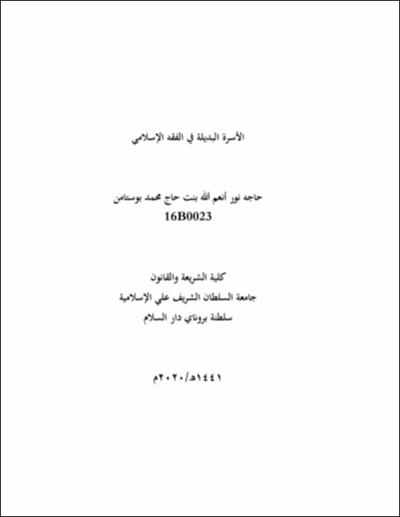الأسرة البديلة في الفقه الإسلامي

Date
2020Author
Nur An’umillah binti Haji Boestaman
Abstract
Adoptive family is a program to adopt another person’s child and care for them as their own under Islamic jurisprudence. It is well known that adoption has already existed long ago even before Islam came, whereas it was known as At-tabanni or التبني . For example, before Nabi Muhammad SAW became Prophet, he adopted Zaid bin Harithah and care for Zaid as his own son and called him Zaid bin Muhammad instead of Zaid bin Harithah. However, after the prophecy, Allah SAW revealed verses from Surah Al-Ahzab ayah 4-5 in which one of its content talks about the issue of ‘re-naming’ after the adoptive father rather than the real father. As the Qur’an says, calling adopted children by the names of their adoptive father is contrary to “the truth” and therefore, they must be called by the name of their real fathers. The purpose of this research is to discuss about adoption under Islamic jurisprudence. Methodology of this research was referred to Al-Quran, Tafsir and Hadith, Feqh 4 mazhab, other religious books, order of Adoption and articles. I also asked about procedure of adoption in Brunei with one of employee from Syariah court to further understand how it works. With result of this research, I found out there is a huge differences between adoptive family and التبني under Islamic Jurisprudence. Differences between the 4 imams were heavily counted in this research to differentiate their opinions on some topics. Lastly, adoption plays a big part in the implications of adoption in Brunei as it is an alternative way to adopt a child.
Collections
Alternative Title
Adoption under Islamic Jurisprudence

